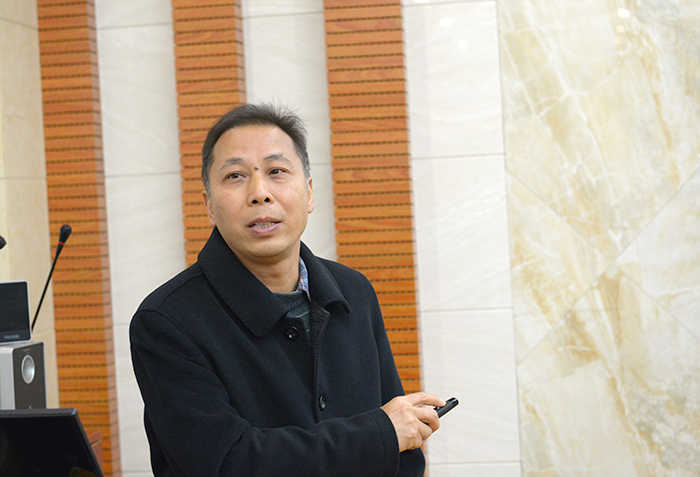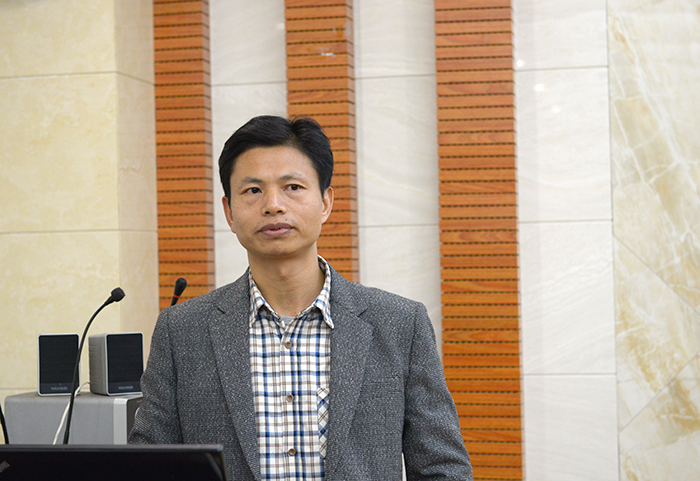|
|
In the afternoon of Nov 14, the bi-weekly academic seminar was held in the first conference room of School of Economics. At the forum, Professor Yuan Qingming and Associate Professor Li Guomin reported their latest research results respectively. The lecture was hosted by Associate Dean Pan Dan.

First of all, Professor Yuan Qingming gave an academic report titled “The Second Paradox of North”. The North's second paradox, which is mainly discussed in this report, is a contradiction between a theory (the transaction costs should be lower and lower as the system progresses) and reality (the measured total transaction costs are getting higher and higher). The report believes that the measured total transaction costs will be looked at the system cost, and the reduced transaction costs will be looked at the institutional benefits, answering the questions of Meri Venetox and Mirolax. Distinguishing the institutional transaction costs in the context of Coase, Williams and Zhang Wuchang and the institutional transaction costs in the context of North, it is helpful to fully understand the central government's reduction of institutional transaction costs. In the dynamic change of the system, it is not appropriate to use the static view of institutional efficiency. Therefore, North gave up this view and changed to adaptive efficiency. 
Then Associate Professor Li Guomin gave an academic report entitled “Empirical Research on the Impact of Declining Manufacturing Revenue on Employment Changes”. The report uses cross-country data from 38 countries in the Growth and Development Center at Groningen University in the Netherlands to analyze the impact of a decline in manufacturing share on employment changes. Methods: Using the decomposition of employment change effect, the employment change in manufacturing industry is divided into three effects: labor density effect, industry proportion effect, and total labor productivity effect. Among them, the labor density effect reflects the impact of manufacturing labor density change on the employment share of manufacturing industry; the industry share effect reflects the impact of manufacturing value added to GDP change on manufacturing employment ratio change; total labor productivity effect reflects the impact of overall industry-wide productivity changes on manufacturing employment. The study found that: ( 1 ) the decline in manufacturing employment in most high-income countries comes from the negative impact of manufacturing employment caused by the labor density effect, but their total labor productivity effect is positive, that is, The increase of the manufacturing industry productivity itself has led to a reduction in its labor density and thus a reduction in the proportion of employment. (2)In the Asian, African and Latin American countries, there is two cases of a decline in the proportion of employment in manufacturing. One is mainly due to the decline in employment caused by the reduction in labor density in the manufacturing industry, such as China, Singapore, South Korea, Taiwan, Malaysia, India, Turkey, Thailand, Brazil, Mexico, the second is the labor density effect is positive, but the industry's share effect is negative, such as Bolivia, Zambia, Malawi, etc.; the third is from the labor density effect and the industry's proportion effect is negative, such as Africa Mauritius, Nigeria, Latin America, Argentina, Chile, Colombia, Peru, etc., Hong Kong, Asia, the Philippines, Singapore, Taiwan and so on. (3) Except for Kenya, Zambia, Malawi, Peru, and Venezuela, the overall labor productivity effects of other countries and regions are positive, indicating that the overall increase in labor productivity in these countries has contributed to the increase in manufacturing employment.
|
|

